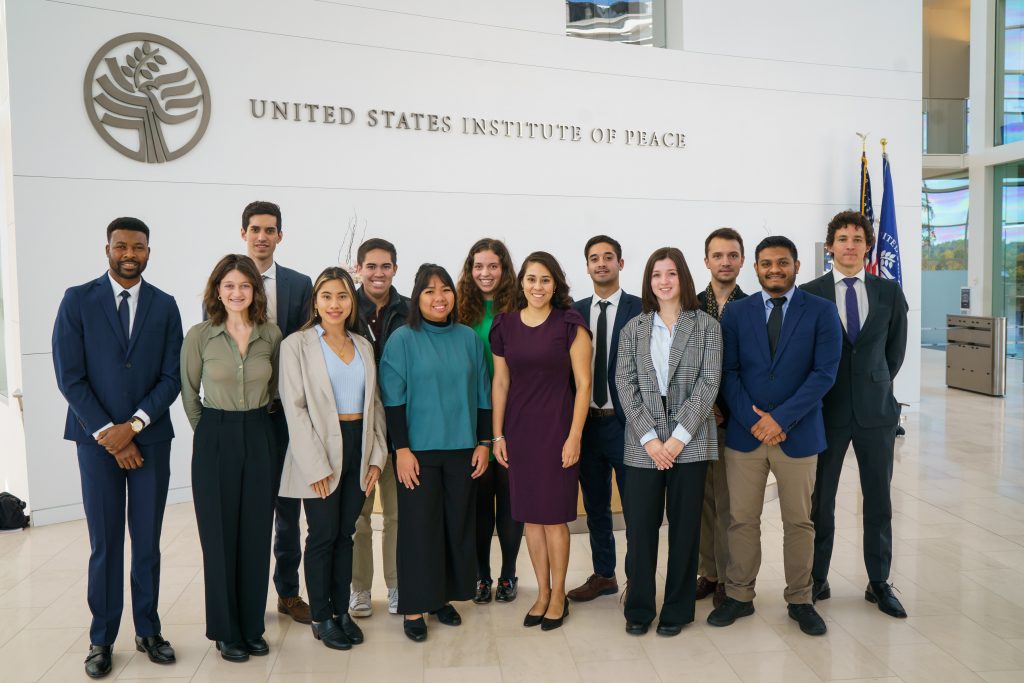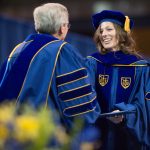For Lamarre Présuma, a recent visit to Washington, DC provided a poignant opportunity to advocate for his country. The master of global affairs student used high-level meetings to pitch anti-poverty research to peace and development experts.
For Sophia Garcia, a master of global affairs student from The Philippines, the trip served as a reminder to invest in relationships and make new connections.
And for sophomore Liam Gibson, the experience enabled him to learn more about the war in Ukraine and the challenges of negotiating peace.
The three were among more than a dozen students from the University of Notre Dame’s Keough School of Global Affairs who visited Washington, DC over fall break, during a weeklong experience that featured a variety of meetings, visits, and panels custom-made for students exploring policy-oriented careers.
Participants visited with staff from US Senator Todd Young’s office, where the conversation covered everything from NATO expansion to sanctions and democratic backsliding. They learned about the intricacies of negotiations during a visit to the United States Institute of Peace (USIP). And they explored the finer points of funding and donor partnerships with staff at USAID. They also toured the US Capitol, networked with policy professionals, and heard from experts during Keough School panels on democracy and Afghanistan.
Preparing for Policy Work
For the master of global affairs students who will soon graduate and begin their careers, the experience provided them with an opportunity to meet one-on-one with policymakers who work in their areas of interest. Students used the trip to make connections and show employees their skills and policy expertise.
For this trip, students developed substantive policy pitches that allowed them to showcase their skills.
“For this trip, students developed substantive policy pitches, which gave them a focus for their meetings and allowed them to showcase their research,” said Maura Policelli, executive director of the Keough School Washington Office and associate professor of the practice at the Keough School. She teaches the school’s Policy Immersion class and helps students connect with policy professionals in Washington. “Our students made good connections and people responded to them very positively.”
The experience was particularly powerful for participants like Présuma and Angelina Soriano, a master of global affairs student from Mexico. Together, they presented their field research on poverty alleviation in Haiti. The research project, conducted through the Keough School’s Integration Lab (i-Lab), helped the international agency Catholic Relief Services understand how to better help Haitians move out of chronic poverty. The students’ work identified key drivers and barriers to escaping poverty and helped conceptualize a “graduation” from poverty that incorporated Haitians’ values and expectations for a better future. The two also identified key recommendations for fostering change, including intergenerational investments, longer planning horizons, and strategic partnerships.
In Washington, after countless hours of preparing and practicing their pitch, they shared their findings with international development and peacebuilding experts at USAID and USIP. Both meetings allowed for small-group conversations where policymakers asked questions about project design and findings, suggested additional avenues for exploration, and pledged to share the work with colleagues in other organizations and government agencies.
It’s a great opportunity for me to draw on local voices and help decision makers better design and develop sustainable solutions.
As he accompanied fellow students on a stroll near the US Capitol, Presuma reflected on the opportunity. Before coming to Notre Dame, he helped Haiti recover from the devastation of the 2010 earthquake, worked to advance the UN Sustainable Development Goals, and promoted disaster resilience. Now, he had just finished talking with well-connected policymakers who could help make a lasting difference. It was a powerful moment.
“My country is going through many challenges,” Présuma said, “and I think it’s a great opportunity for me as a young professional looking for a career in international development policy to draw on local voices and to tell decision makers what situations people are facing and how they can better design and develop programming that can provide long-term sustainable solutions.”
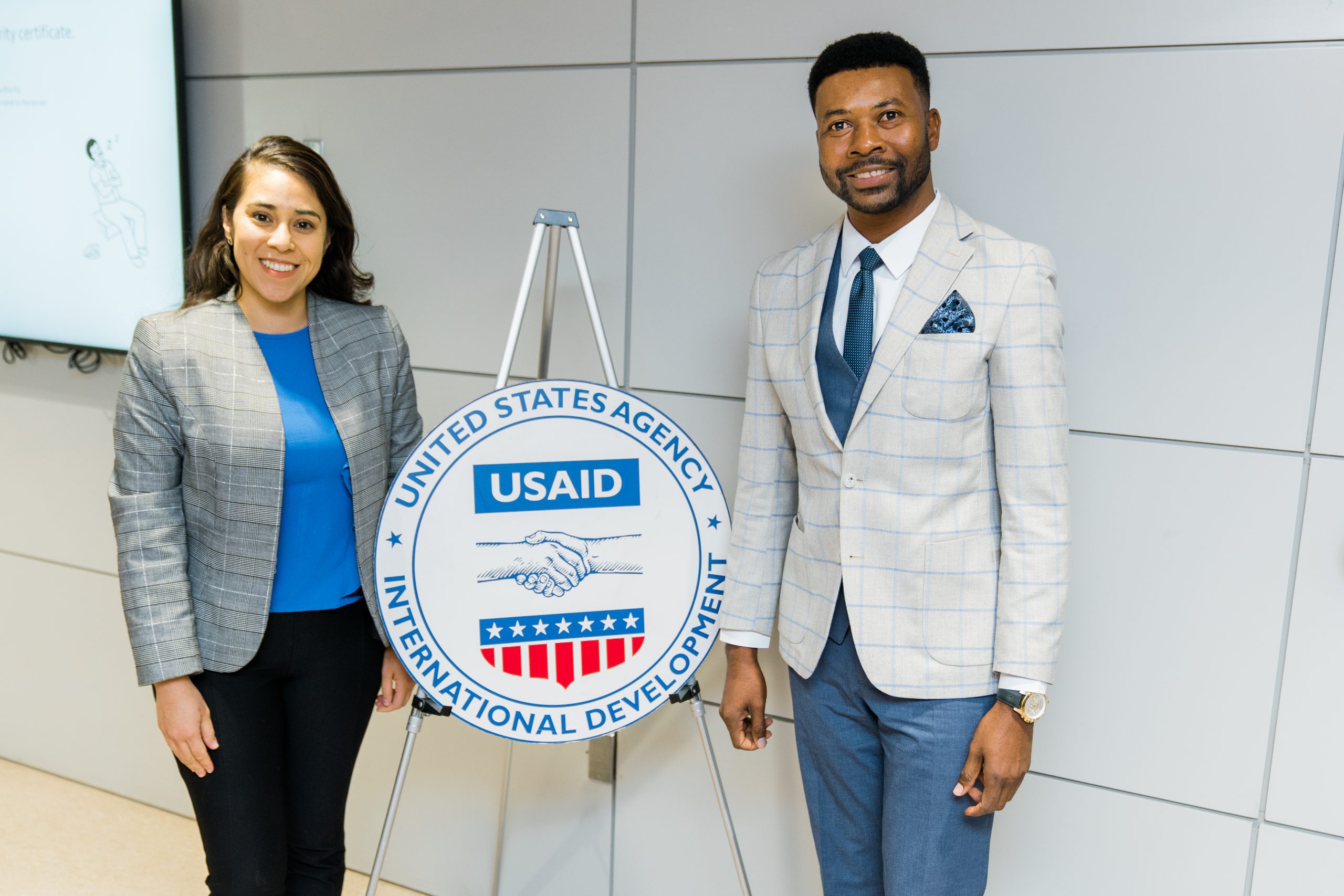
For Soriano, the experience underscored the Keough School’s emphasis on integral human development as well as its global policy network. She appreciated seeing the project progress from a concept in the i-Lab classroom to on-the-ground interviews with everyday Haitians to presentations in Washington, where its central ideas could now influence powerful changemakers.
It’s interesting to see how integral human development can be brought from conceptualization to the field to decision makers, and how it can ultimately influence policy.
“It has been a real privilege to see how the Keough School is really well connected here in DC and to sit down with decision makers, people who are trying to work through the current crisis in Haiti,” she said. “For me, it’s interesting to see how integral human development can be brought from conceptualization to the field to decision makers, and how it can ultimately influence policy.”
Learning and Networking
The week also provided ample opportunities for learning and networking. For students in the Diplomacy Scholars class, it was an opportunity to learn firsthand about diplomacy by meeting with a variety of officials.
“The experience gave students the opportunity to engage with an array of individuals and organizations that work broadly in diplomacy and to learn directly about global issues—including the war in Ukraine—from the very people grappling with these issues,” said Abigail Lewis, the Nanovic Institute’s postdoctoral research associate, who led the class.
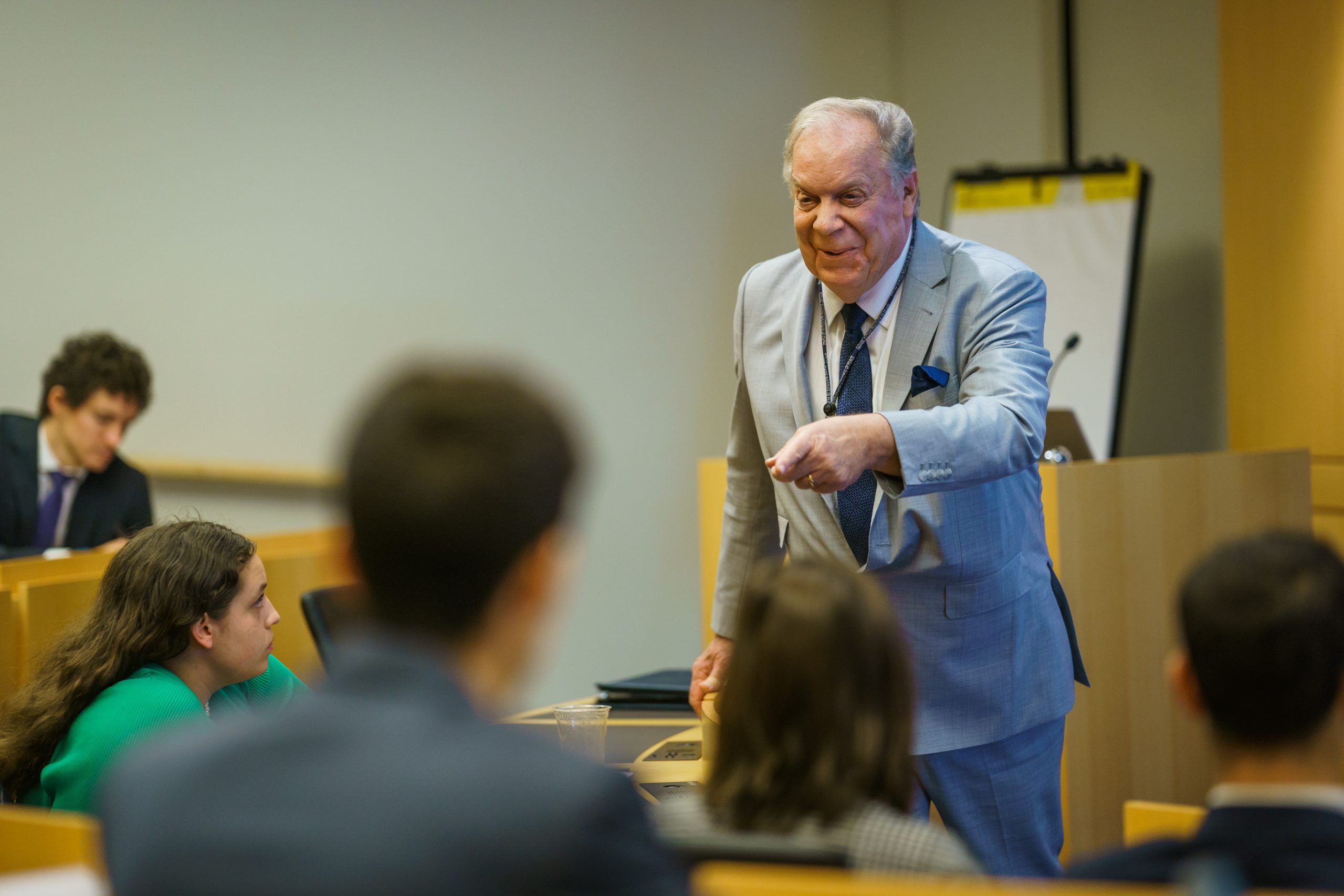
The Russia-Ukraine war was top of mind for Diplomacy Scholars student Liam Gibson, who is studying history, Russian, and global affairs at Notre Dame. He appreciated the chance to hear from Ukrainian and Polish diplomats as well as USIP’s top Russia expert, who outlined the challenges of negotiating with Putin’s government and understanding what the Russians hope to achieve from negotiations.
“Many of the diplomats and NGO officials have been answering a lot of questions related to Ukraine,” Gibson said, “so it’s directly tied into my interests and it’s been a really rewarding experience.”
People are at the center of what we do.
Students finished the week with a career panel that allowed them to hear from experts who discussed their professional trajectories, measuring one’s impact at work, and setting priorities, values, and boundaries in a changing workplace. Afterward, they attended a networking reception that drew a diversity of policy professionals. The Keough School partnered with InterAction, the largest alliance of international NGOs in the United States, on both events.
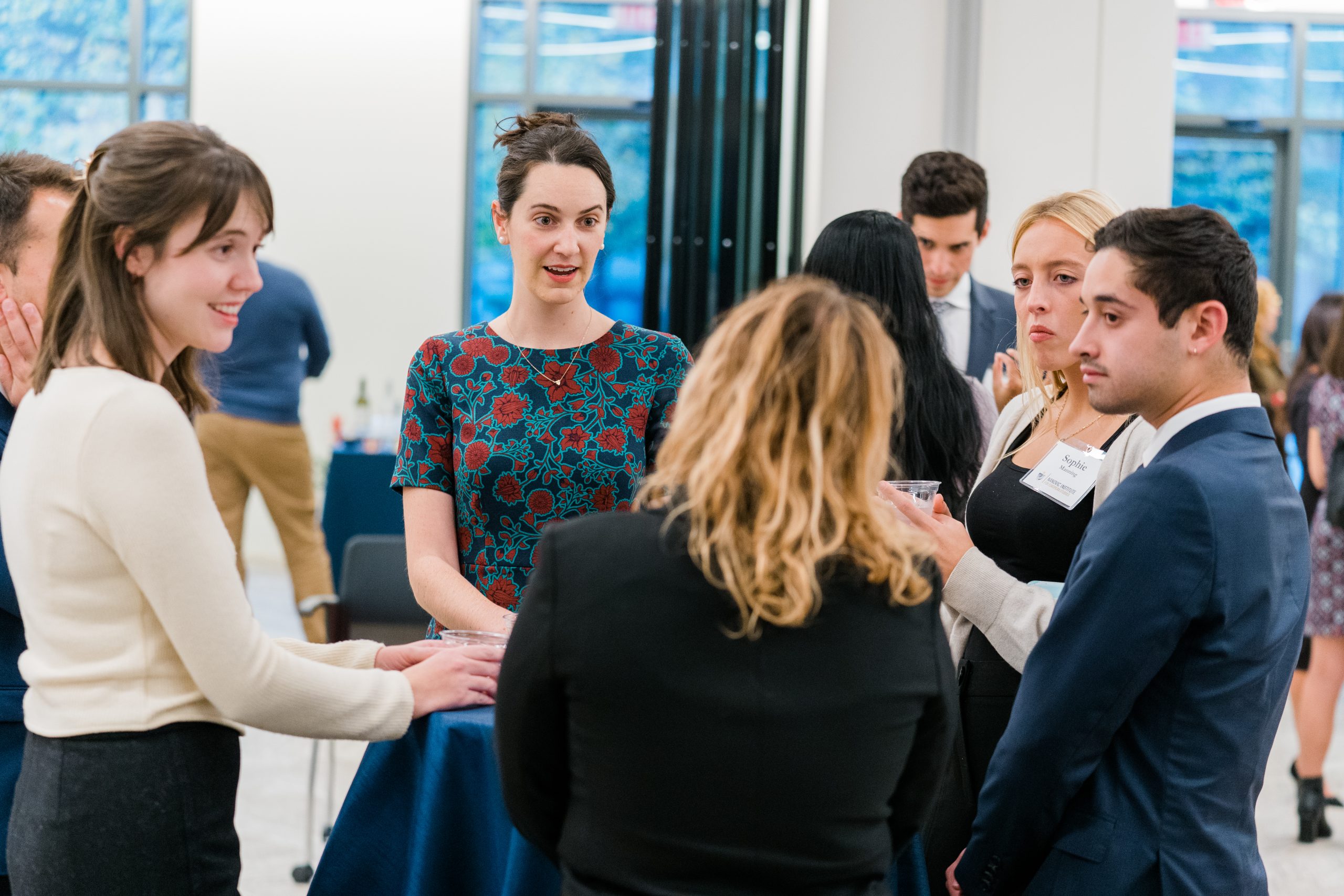
Sophie Manning, a junior studying history, French, and global affairs, found it helpful to hear from professionals who had taken different career paths. She learned that careers don’t always unfold the way one might expect, but the key is to follow one’s passion and make the most of each opportunity: “That encapsulates one takeaway, which is that development is not really a linear path.”
Sophia Garcia, a master of global affairs student from The Philippines, found the week a helpful reminder to focus on building and maintaining relationships with fellow professionals, particularly as she prepares to launch her own policy career.
“One of the things that stood out to me the most—amid all the meetings with embassies, with international and governmental organizations, and with policymakers—is the importance of building relationships with different sectors and informing different decision-making processes,” she said. “At the end of the day, people are at the center of what we do.”
